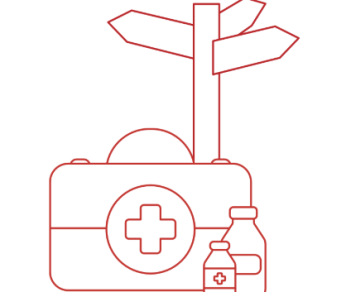Required education
ADN or BSN
Attributes
Patient-facing
Work hands-on, directly with patients.
Structured
Follow a routine that allows you to anticipate and prepare for every situation.
Varied
Take on different tasks, patients, and situations every day.
You’ll help your patients enjoy a better quality of life by helping them stay mobile and independent.

What you’ll do
Collaboration
You’ll be the liaison between patients, family and care providers.
Education
You’ll teach patients and their families about their health condition and the best ways to manage it.
Treatment
You’ll perform check-ups, administer medication, and help with pain management and rehabilitation.
Where you’ll work
- Hospitals
- Nursing homes
- Outpatient care centers
- Patients’ homes
- Retirement centers
How to become a Geriatric Nurse
01
Get an Associate’s Degree in Nursing (ADN) or Bachelor of Science in Nursing (BSN)
02
Pass the NCLEX-RN.
03
Work as a Registered Nurse for at least 2 years, including 2,000 hours in Geriatric Nursing and 30 hours of continued education.
04
Get your Certification in Geriatric Nursing from the American Nurses Credentialing Center.
05
You’re ready to work as a Geriatric Nurse.
Join an Organization
Become a member of a Geriatric Nurse organization to find career opportunities, learn from your colleagues, and support the profession.
A Health Policy Nurse’s role is also structured.
A Family Nurse Practitioner is another type of family nurse.







